top of page
Touch, Hear, Explore: Enhancing Accessibility at Fisherman’s Wharf for the vision-impaired.
This project focuses on creating a more inclusive tourism experience for visually impaired visitors at Fisherman’s Wharf in San Francisco. The aim is to provide a multi-sensory experience that allows individuals to explore, connect with, and enjoy the site’s rich history and culture independently.
Problem Statement
Visually impaired visitors face significant challenges navigating and engaging with Fisherman’s Wharf due to its reliance on visual cues, crowded environment, and lack of accessible information. Current tourism experiences at the Wharf do not adequately cater to the needs of visually impaired individuals, making it difficult for them to explore the site independently or connect with its rich history and culture.
Observational Study
_edited.png)
SWOT Analysis
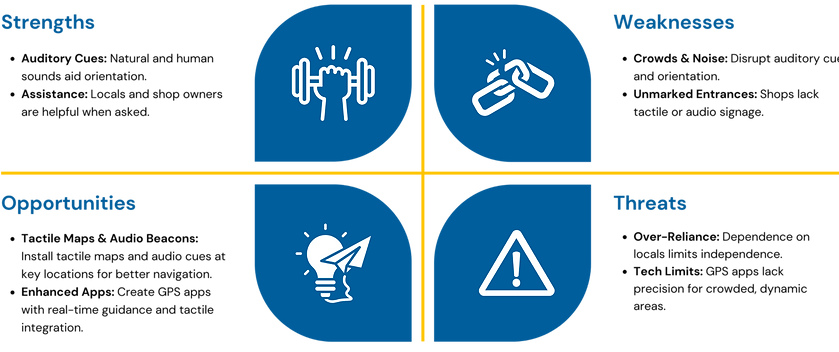_edited.png)
Market Analysis
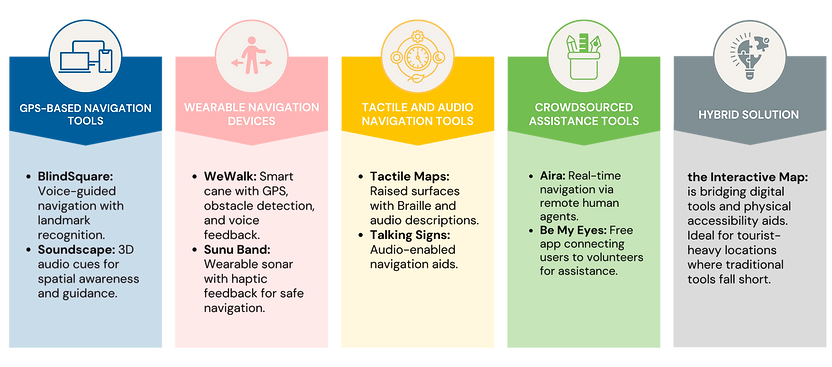.png)
Persona
_edited.png)
Design Solution
The design solution introduces a series of Interactive Tactile Maps strategically placed at key locations throughout Fisherman’s Wharf. Each map covers a specific section, simplifying navigation and offering information for visitors. Raised surfaces, braille, and touch-sensitive buttons activate pre-recorded audio descriptions with landmark details and history, creating an accessible, engaging, and multi-sensory experience for visually impaired visitors.
Sketches
.png)
Low Fidelity Prototype
.png)
Usability Testing
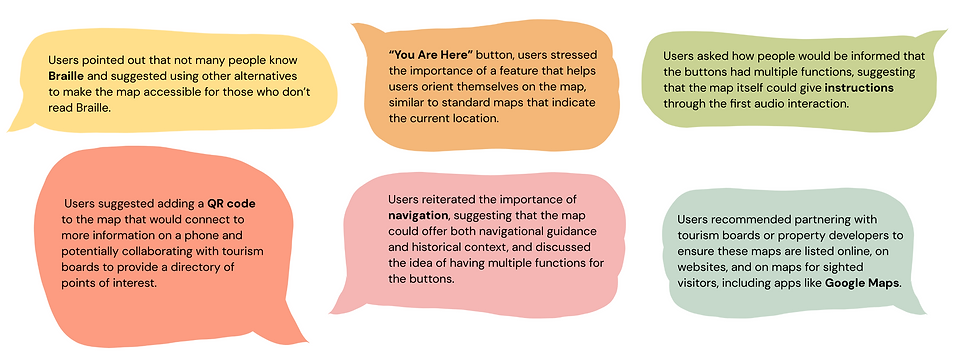
Journey Map
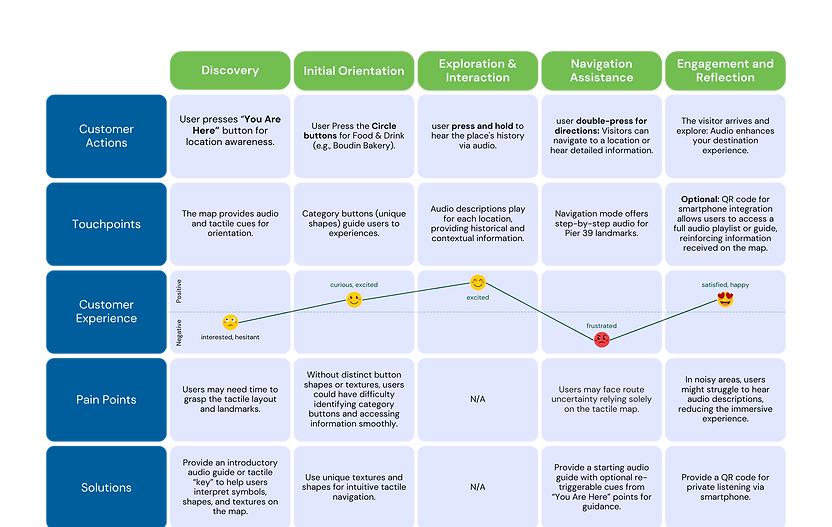
Storyboard
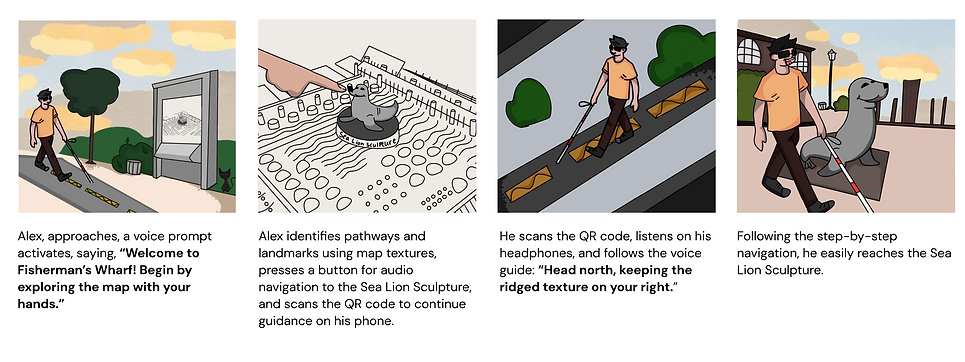
Documentation Process
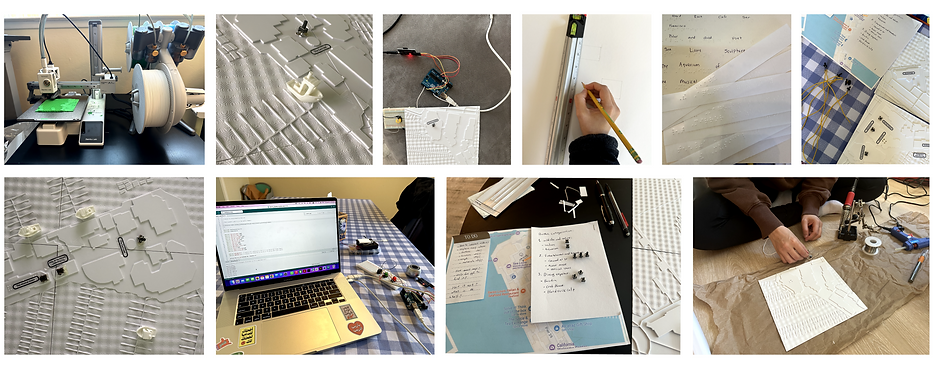
Final Design
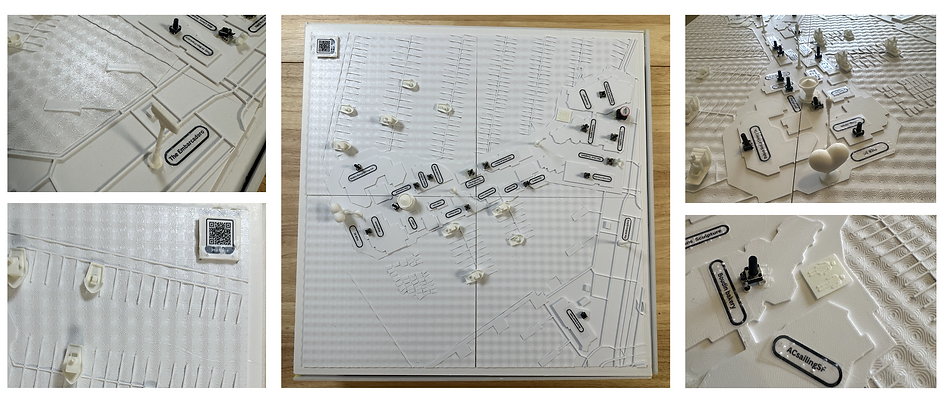
Full-Scale Design Concept
Dimensions: 24 x 36 inches, with 2-inch thickness for durability.
Materials: Sturdy metal or acrylic base, UV-resistant surface, weatherproof Braille labels.
Tactile elements:
Paths: Smooth, raised lines for pathways.
Water: Rough textures to represent water areas.
Landmarks: 3D-printed miniatures with Braille labels.
Buttons: Interactive at key locations, enabling audio descriptions and navigation.
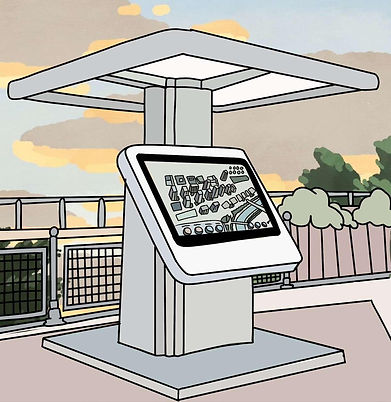
bottom of page
